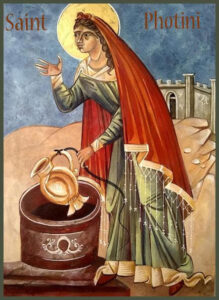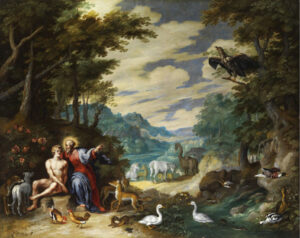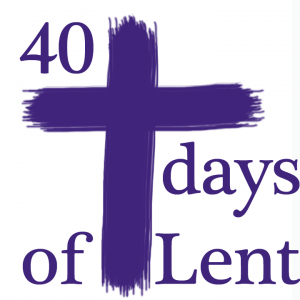 A clergy colleague suggested recently that this Sunday’s epistle reading[1] makes a lot more sense if you add ‘Dear Diary’ at the start. I think he’s right. For seven chapters of his letter to the Romans, Paul the erudite and well-educated Greek-speaking rabbi has been going on at length about the Law and how it does or does not apply to Jews and Gentiles, how it does or does not apply to members of the church, and so forth. And then, all of a sudden, he’s no longer the learned Jewish Christian apologist; he’s just a guy complaining about life. He begins writing in the first person and bemoaning his inability to carry through with his best intentions. It’s like, “Dear Diary, I really screwed up and I don’t understand why!”
A clergy colleague suggested recently that this Sunday’s epistle reading[1] makes a lot more sense if you add ‘Dear Diary’ at the start. I think he’s right. For seven chapters of his letter to the Romans, Paul the erudite and well-educated Greek-speaking rabbi has been going on at length about the Law and how it does or does not apply to Jews and Gentiles, how it does or does not apply to members of the church, and so forth. And then, all of a sudden, he’s no longer the learned Jewish Christian apologist; he’s just a guy complaining about life. He begins writing in the first person and bemoaning his inability to carry through with his best intentions. It’s like, “Dear Diary, I really screwed up and I don’t understand why!”
But this passage is not in Paul’s diary, it’s in his letter to the Romans, which the church has preserved as part of Holy Scripture, so here we are reading it during worship and trying to figure out just what the heck Paul is talking about! Is he, autobiographically and symbolically, describing a believer’s pre-conversion state? That is, does the misery described in these verses represent a person’s life before receiving the grace of Christ’s death, resurrection, and ascension? Or, alternatively, is he presenting himself as the stereotypical believer after receiving the grace of baptism? Does the conundrum Paul describes characterize the life of faith? And if he couldn’t get it right, who could?
 What are we to do with our first lesson today? The story of the testing of Abraham and the binding of Isaac, called the Akedah in Hebrew, “exudes darkness and mystery, and it brings before us a thousand questions, most of which have no answers.”
What are we to do with our first lesson today? The story of the testing of Abraham and the binding of Isaac, called the Akedah in Hebrew, “exudes darkness and mystery, and it brings before us a thousand questions, most of which have no answers.” Do any of you know the story of Tubby the Cocker Spaniel? Well . . . remember Tubby’s name. We’ll come back to him, but first let’s put today’s gospel lesson in perspective.
Do any of you know the story of Tubby the Cocker Spaniel? Well . . . remember Tubby’s name. We’ll come back to him, but first let’s put today’s gospel lesson in perspective. Our gospel lesson is the shortened version of Jesus’ commission to the twelve as he sends them out to do missionary work. As he continues with their instructions he tells them, “I am sending you out like sheep into the midst of wolves; so be wise as serpents and innocent as doves,”
Our gospel lesson is the shortened version of Jesus’ commission to the twelve as he sends them out to do missionary work. As he continues with their instructions he tells them, “I am sending you out like sheep into the midst of wolves; so be wise as serpents and innocent as doves,” “As Jesus was walking along, he saw a man called Matthew sitting at the tax booth; and he said to him, ‘Follow me.’ And he got up and followed him.”
“As Jesus was walking along, he saw a man called Matthew sitting at the tax booth; and he said to him, ‘Follow me.’ And he got up and followed him.” “[W]e had hoped that he was the one to redeem Israel . . . and . . . it is now the third day since these things took place.”
“[W]e had hoped that he was the one to redeem Israel . . . and . . . it is now the third day since these things took place.” We “boast in our sufferings,” writes Paul to the Romans, “knowing that suffering produces endurance, and endurance produces character, and character produces hope, and hope does not disappoint us….”
We “boast in our sufferings,” writes Paul to the Romans, “knowing that suffering produces endurance, and endurance produces character, and character produces hope, and hope does not disappoint us….” There is an old tradition in the church: on Trinity Sunday, rectors do their best to get someone else to preach. If they have a curate or associate priest, he or she gets the pulpit on that day. If not, they try to invite some old retired priest to fill in (as Rachel has done today). No one really wants to preach on Trinity Sunday, the only day of the Christian year given to the celebration or commemoration of a theological doctrine, mostly because theology is dull, dry, and boring to most people and partly because this particular theological doctrine is one most of us get wrong no matter how much we try to do otherwise.
There is an old tradition in the church: on Trinity Sunday, rectors do their best to get someone else to preach. If they have a curate or associate priest, he or she gets the pulpit on that day. If not, they try to invite some old retired priest to fill in (as Rachel has done today). No one really wants to preach on Trinity Sunday, the only day of the Christian year given to the celebration or commemoration of a theological doctrine, mostly because theology is dull, dry, and boring to most people and partly because this particular theological doctrine is one most of us get wrong no matter how much we try to do otherwise.  Come Holy Spirit, Comforter, Spirit of Truth,
Come Holy Spirit, Comforter, Spirit of Truth,


